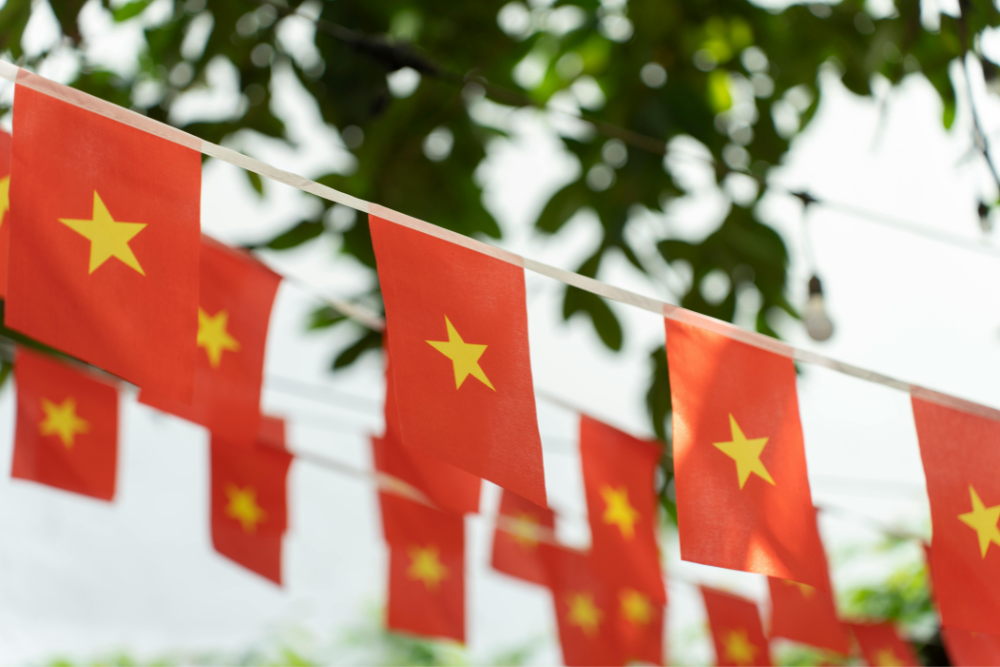Interested in unlocking the potential of the Philippines’ skilled workforce? Starting with Filipino contractors is a wise first step for foreign companies. It’s a flexible way to engage with the local talent, allowing for easy international payments and a firsthand experience of the workforce dynamics. But if you’re looking to hire employees in the Philippines, it’s crucial to know what comes next.
Hiring workers in the Philippines usually means you have to either set up your own business entity or work with an Employer of Record (EOR). Creating a legal entity is a straightforward path but requires a significant time investment—often stretching over months—and a thorough understanding of the complex Philippine employment laws. Missteps in this area can lead to serious penalties and legal issues, particularly with the Bureau of Internal Revenue (BIR) and other regulatory authorities.
A simpler and more efficient route is partnering with an employer of record in the Philippines. EORs are experts in handling the intricacies of payroll, compliance, and taxes in the Philippines, providing a smooth and compliant expansion solution. Here’s a straightforward guide to leveraging an EOR for employing workers in the Philippines, allowing you to concentrate on growing your business while staying in line with local laws.
Using Employer of Record in the Philippines To Hire Employees
When you’re looking to grow your global presence and choose your team in the Philippines, you have two main options: either set up your own company there or use an Employer of Record (EOR). The best choice depends on how much time, money, and effort you’re ready to invest.
Going the Traditional Route: Setting up Your Own Company
Starting your own company in the Philippines is a big step, but it’s definitely doable. You’ll need to register with the government, which includes making sure you’re all set with the Department of Labor and Employment (DOLE) to keep things smooth with employment rules. Then, you’ll open a bank account locally and get familiar with all the tax and labor laws to stay on the right side of regulations. If you’re ready to make a significant impact in the Philippines and have the resources to back it up, this could be the perfect move for your business.
The Hassle-Free Alternative: Using an Employer of Record in the Philippines
Using an Employer of Record (EOR) in the Philippines is like finding a fast track to expanding your team. An EOR steps in as the legal employer for your team members, which means you can bypass the complexities of establishing your own company there. They navigate the maze of laws in the Philippines on your behalf, ensuring everything from payroll to work contracts and benefits is up to scratch and fully compliant. Plus, they sort out taxes, onboard your new hires, and take care of payroll, letting you focus on growing your business without the legal headaches.
Making Your Choice
Consider what’s ideal for your business’s growth. Opting to outsource your HR needs to an Employer of Record (EOR) allows you to swiftly start hiring in the Philippines, sidestepping the complexities of establishing a new entity. This approach aligns seamlessly with your business objectives, ensuring compliance with Philippine government regulations, managing payroll taxes efficiently, and offering competitive employee benefits. It’s a strategic move that caters directly to your business needs and aspirations.
Step #2: Finding the Perfect Employer of Record for Your Company
Before settling on an Employer of Record (EOR) for your business, it’s essential to assess your needs and the scale of your international team aspirations.
Essential Considerations for Selecting an EOR:
- Geographical Coverage: Ensure the EOR operates in the countries where you’re looking to expand. This is fundamental for your global growth strategy.
- Ownership of Local Entities: Verify whether the EOR directly owns the entities through which they hire. Partnerships with local entities could influence the consistency of their service.
- Data Security: Confirm that the EOR prioritizes the protection of sensitive data, safeguarding both employer and employee information against breaches.
- Efficiency of Services: Opt for an EOR that leverages technology to streamline processes such as hiring, onboarding, and payroll management. This can significantly reduce administrative burdens.
- Support and Expertise: Access to responsive and knowledgeable support is crucial, particularly for navigating the intricacies of employment in the Philippines, including understanding employee entitlements, managing holidays in the Philippines, and ensuring compliance with local employment laws.
Choosing the right EOR involves careful consideration of these factors to ensure a smooth and compliant expansion of your team internationally.
Step #3: Smoothly Hiring and Welcoming Your Team in the Philippines
Once you’ve picked an EOR that works in the Philippines, you can begin the onboarding process by collecting the following information from your new employees:
- Name (matching the account where you’ll deposit their pay).
- Date of birth and date of hire.
- Contact information, including their mailing address in the Philippines.
- Bank account information.
- Amount to be paid in PHP (including any bonuses).
- Tax Identification Number (TIN).
- Social Security System (SSS) number.
- PhilHealth number.
- Home Development Mutual Fund (HDF) registration, available online.
Next, you need to send out an employment agreement that outlines key working conditions. An EOR can automatically localize and distribute employment agreements. Every Filipino hire will have a legally compliant contract offering statutory requirements for probationary periods, working hours, minimum wage, benefits, and termination policies like severance pay and notice periods.
Example: An EOR can account for the different minimum wage requirements for agricultural and non-agricultural employees across the Philippines’ 16 regions. For instance, while the wage is PHP 533-570 for employees in Metro Manila, it’s PHP 416-441 in CALABARSON.
Step #4: Simplifying Your Team's Payroll in the Philippines
- The Social Security System (SSS), providing a range of benefits from pensions to maternity leave.
- The Philippine Health Insurance Corporation (PhilHealth), ensuring access to healthcare services.
- The Home Development Mutual Fund (HDMF), also known as the Pag-IBIG Fund, which supports housing and savings programs for Filipino workers.
- The Social Security System (SSS), providing a range of benefits from pensions to maternity leave.
- The Philippine Health Insurance Corporation (PhilHealth), ensuring access to healthcare services.
- The Home Development Mutual Fund (HDMF), also known as the Pag-IBIG Fund, which supports housing and savings programs for Filipino workers.
With an EOR, you can rest assured that payroll is handled efficiently and in full compliance with Philippine regulations, allowing you to focus on growing your business.
Understanding Employer Contributions for Full-Time Employees in the Philippines
As an employer in the Philippines, whether you’re operating through a Philippines EOR, a subsidiary in the Philippines, or directly as an entity in the Philippines, your role extends beyond business operations to significantly impact your employees’ lives. Your responsibilities include ensuring the well-being and financial security of your team, which is reflected in how you manage contributions to their social services.
- Social Security: Your contributions to the Social Security System (SSS) are vital. They provide your employees with a safety net, offering benefits that cover retirement, maternity, and disability. This support is a cornerstone of employment security in the Philippines.
- Health Insurance: By contributing to the Philippine Health Insurance Corporation (PhilHealth), you ensure that your employees have reliable access to healthcare services. This is crucial for their health and peace of mind.
- Housing Support: Your contributions to the Pag-IBIG Fund empower your employees in their pursuit of homeownership or housing assistance, making this a significant aspect of their financial well-being.
Beyond these contributions, understanding leave in the Philippines is essential. The Labor Code of the Philippines outlines various leave entitlements, ensuring employees have adequate rest and personal time. This includes annual leave, maternity/paternity leave, and sick leave, among others.
When drafting employment contracts in the Philippines, it’s important to clearly outline these benefits, along with the standard work week in the Philippines, which typically spans from Monday to Friday. Should the need arise to terminate an employee, it’s crucial to adhere to the due process as defined by the Labor Code of the Philippines, ensuring fairness and compliance with local regulations.
Your contributions and adherence to the labor laws not only fulfill legal obligations but also enhance your employees’ quality of life, contributing to a positive and productive work environment.
Key Takeaways: Navigating Global Expansion with an EOR in the Philippines
- Partner with an EOR: Simplifies the process of entering the Philippine market by managing employment, payroll, and compliance, allowing businesses to focus on core operations.
- Start with Contractors: Engaging Filipino contractors is a flexible, low-risk strategy to familiarize with the local workforce and manage payments without extensive local knowledge.
- EOR vs. Legal Entity: Opting for an EOR avoids the complexities and time involved in setting up a legal entity in the Philippines, handling all local employment laws and regulations.
- Choose the Right EOR: Important factors include local expertise, data security, process efficiency, and quality support to ensure a smooth expansion.
- Compliant Employment Contracts: EOR ensures that contracts adhere to Philippine laws, covering essential aspects like leave, work hours, minimum wage, and termination policies.
- Payroll and Benefits Compliance: EOR manages payroll and benefits according to local laws, ensuring contributions to social security, health insurance, and housing funds.
- Understand Employer Responsibilities: Employers must be aware of their obligations, including social services contributions and standard work week regulations, and maintain clear employment contracts.
- Empleyo as an Ideal Partner: Offers a comprehensive EOR solution for onboarding, legal compliance, and efficient payroll management in the Philippines.
FAQs: Hiring in the Philippines with an Employer of Record (EOR)
1. How much does it cost to partner with an EOR?
Typically, EORs offer two pricing models:
- A fixed monthly fee for each employee.
- A percentage of the employee’s payroll, plus any relevant taxes.
Be aware that additional fees might apply for setup, onboarding, and extra services. The good news is you can choose to use an EOR for just part of your team, paying only for the employees managed through the EOR.
2. How much does it cost to partner with an EOR?
A Professional Employer Organization (PEO) shares the responsibility of your workforce, handling tasks like payroll and compliance. However, a PEO doesn’t enable hiring in new countries without a local business setup.
An Employer of Record (EOR), in contrast, becomes the official employer for the part of your team it manages, taking on all related responsibilities. This makes it possible to hire internationally without establishing a local entity.
- A fixed monthly fee for each employee.
- A percentage of the employee’s payroll, plus any relevant taxes.
Be aware that additional fees might apply for setup, onboarding, and extra services. The good news is you can choose to use an EOR for just part of your team, paying only for the employees managed through the EOR.
3. How Safe Is Your Data with an EOR?
Handing over payroll to an EOR saves time and reduces compliance headaches, but it’s crucial to choose one that takes data security seriously. Look for EORs with:
- Strict adherence to global privacy laws.
- Secure systems maintained 24/7.
- A team that’s thoroughly checked for reliability.
Consider a Data Processing Agreement (DPA) with your EOR for added legal safeguards and privacy assurances.
4. Can an EOR Handle Tax Filings in the Philippines?
Yes, an EOR can streamline your tax processes, accurately calculating and submitting necessary tax documents on your behalf. This includes income taxes, social security, health insurance, and contributions to housing funds.
5. What Benefits Are Required for Employees in the Philippines?
In the Philippines, employees are entitled to a range of benefits as mandated by the Philippine Labor Code, ensuring their well-being and financial security throughout their employment journey.
- Retirement Plans: After a minimum of 5 years of service, employees are eligible for retirement benefits, ensuring a secure future.
- Health Insurance: Comprehensive coverage that supports employees’ medical needs.
- Disability and Sick Leave: Employees receive up to 15 days of paid sick leave annually, providing peace of mind during health setbacks.
- Maternity Leave: New mothers are entitled to 105 days of paid leave, ensuring ample time for recovery and bonding with their newborn.
- Paternity Leave: Fathers can avail of 7 days of paid leave, supporting family dynamics.
- Vacation Time: Employees enjoy 5 days of paid vacation leave after a year of service, encouraging rest and rejuvenation.
- Unemployment Insurance: A safety net for those who find themselves unexpectedly out of work.
- Public Holiday Observance: Employees are compensated for national holidays, respecting cultural and historical significance.
- 13th-Month Bonus Pay: An additional month’s salary paid at the end of the year, boosting morale and financial well-being.
For those looking to buy or build their homes, the Pag-IBIG Fund provides valuable housing loans and financial assistance, further enhancing employees’ quality of life.
Employers must factor these benefits into their payroll processing to ensure compliance and manage employer costs effectively. This comprehensive benefits package not only adheres to legal requirements but also positions the Philippines as a nurturing work environment, attracting and retaining talent.







